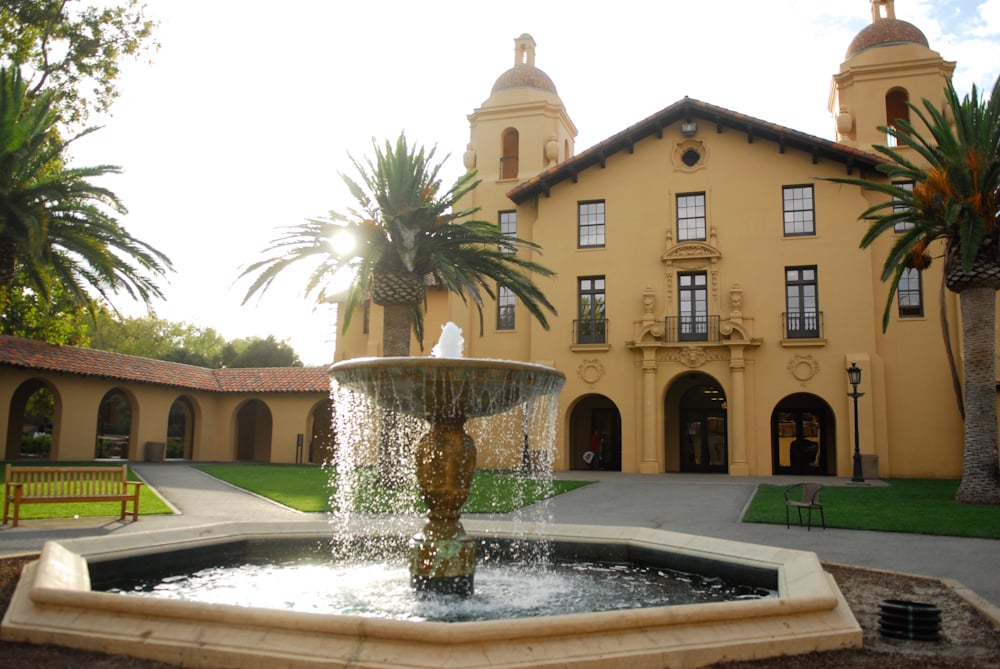The First Generation and/or Low-Income Student Success Center (FLISCC) became the fourth of Stanford’s eight community centers to receive an endowed directorship in August, when Lien Truong was appointed as the center’s associate dean and Kelsey and Robert Murphy Director.
The directorship was funded using a gift from Stanford alumni Kelsey Murphy ’10 and Bobby Murphy ’10, who are co-founder and Chief Technology Officer of Snap Inc, respectively. The gift also includes a separate student success fund to bolster the FLISCC’s existing Opportunity Fund, which supports first generation and/or low-income (FLI) students undergoing financial difficulties or seeking funding for their academic or professional development. The exact amount of the gift is unknown.
According to FLI student coordinator David Sengthay ’26, the endowment safeguards the longevity of the FLISCC by ensuring there is a director, which codifies the center as an institution on Stanford’s campus.
The endowment “will definitely give [Truong] more flexibility to work within the University, knowing that her job is protected because the directorship position is endowed,” he said. “That allows us to really take our center one step further.”
Sengthay added that the endowment creates a safety net that allows FLISCC “to really push the boundaries and explore what it means to be a community center on campus.”
According to Sengthay, who was on the hiring committee last year, the FLISCC directorship is a competitive position chosen on the basis of multiple rounds of interviews. First, an initial group of 30 applicants submitted their resumes, of which eight candidates were selected by the hiring committee. Then, members of the hiring committee conducted Zoom interviews of each of the eight remaining candidates. Finally, three to four candidates were selected for final interviews. These candidates met with fellow community center directors, campus partners and students. The final two candidates were submitted for consideration to the Centers for Equity, Community and Leadership (CECLs). Associate Vice Provost for Inclusion, Community, and Integrative Learning Samuel Santos Jr. made the final decision to select Truong for the position.
“We’re so excited to have [Truong],” said Sengthay. “She’s been doing a fantastic job, speaking as a student, staff, worker and member of the hiring committee. She’s really impressed me thus far, and I’m looking forward to what she does with this new endowment and the privileges and safety that it offers to our center, and how she makes use of that.”
As director of FLISCC, Truong — formerly the interim dean of students for multicultural affairs at UC Berkeley — will support FLI initiatives and participate in the leadership team for all eight of Stanford’s CECLs.
“I’m excited to continue expanding our efforts to serve more first-generation and low-income communities,” said Truong. “It’s important to ensure they have access to the same resources as their peers and opportunities to enhance their academic journey here at Stanford.”
Truong, formerly a first-generation and low-income college student herself at Saint Mary’s College of California, plans to use data to enhance the functionality of the FLI center, according to Santos. Truong also holds a Master’s degree in equity and social justice from San Francisco State University and a Doctor of Education and Master’s degree in educational leadership from Mills College.
“Dr. Truong brings a wealth of experience in higher education and a deep commitment to diversity and inclusion,” said Santos. “Her own background as a first-generation, low-income student enriches her perspective, making her a valuable addition to the FLISCC team.”
In July, Santos announced her directorship, writing that Truong “has demonstrated a deep understanding of cultural and identity-based centers, a track record of building highly collaborative relationships, and deep commitment to supporting students achieve their academic goals.”
“She has a lot of experience and leadership qualities, and I think she is going to do a great job in pushing the center to new heights,” Christian Sanchez ’24, the former Associated Students of Stanford University (ASSU) Executive Fellow for Transfer Advocacy and Transitional Holistic Readiness Initiative for Vibrant Education (THRIVE) coordinator, said of Truong. “Having that endowment, I think, also gives [FLISCC] a bit of institutional stability as well.”
FLISCC offers myriad resources for FLI students, including academic advising, financial aid information, textbooks, food security resources and mental health and wellness services. According to the FLISCC’s website, the center “operates on the pillars of advocacy, mentorship, community and belonging,” providing support to first-generation, low-income, transfer, current and former foster youth and FLI graduate students.
“A lot of the programming that they put on is to build community and a sense of belonging,” Sanchez said. “The FLI center is a very intersectional sort of place where there’s so many different identities that overlap. It’s a place where folks from all cultures can get together and find a sense of belonging.”
